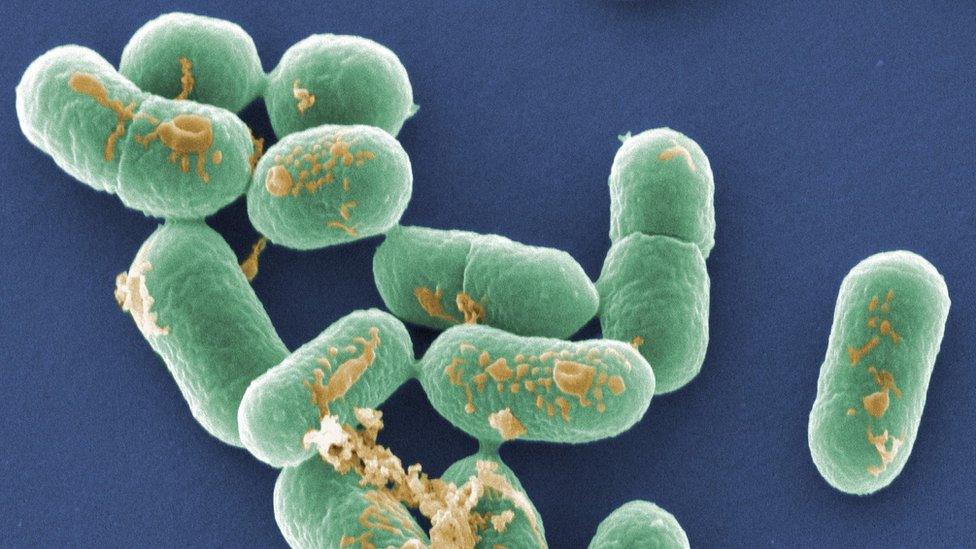South Africa listeria: Source of 'world's worst outbreak' found
- Published

The strain of listeria found in the Polokwane factory that tested positive is particularly virulent
South Africa says it has finally traced the source of a listeria outbreak that has killed 180 people in the past year - said to make it the worst in history.
The source is a factory operated by Enterprise Foods in Polokwane in Limpopo.
More facilities are being tested to see if they contributed to the outbreak which infected almost 1,000 people.
The health minister warned cross-contamination of other processed meats could have occurred in shops.
"Avoid all processed meat products that are sold as ready to eat‚" Health Minister Aaron Motsoaledi told journalists at the National Institute of Communicable Diseases (NICD) on Sunday afternoon.
, reported Times Live.
In some people the disease causes high temperatures, vomiting and diarrhoea, and the elderly, people with compromised immune systems, and babies - both in the womb and newborn - are particularly vulnerable.
More than 16 environmental samples from the Enterprise Polokwane factory tested positive for the Listeriosis monocytogenes strain ST 6 - a particularly virulent strain.
Mr Motsoaledi said a ready-to-eat sausage known as polony, made by Enterprise Food and RCL Foods, would be recalled from stores.
A shortage of the solution used for testing for the listeria bacteria meant the results of the tests at the Polokwane factory were delayed by two weeks, NICD's Dr Juno Thomas told Times Live.
It is believed that the factory will be closed down.
The Listeria bacteria is hard to test for, as it is not homogenously distributed in food. It can also "hide away" in cracks or niches in factories.
Consumers who stored recalled products in their fridges should disinfect them with diluted bleach.
What is listeriosis?
It can be caught from food containing listeria bacteria, or close contact with farm animals
Cases usually involve unpasteurised milk or dairy products, such as camembert and brie
Pre-packed foods, including sandwiches and paté, can also contain listeria
Symptoms include high temperature, flu-like symptoms, vomiting and diarrhoea
Most people infected display no symptoms, but elderly and very young people are vulnerable
Source: NHS